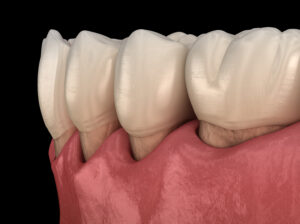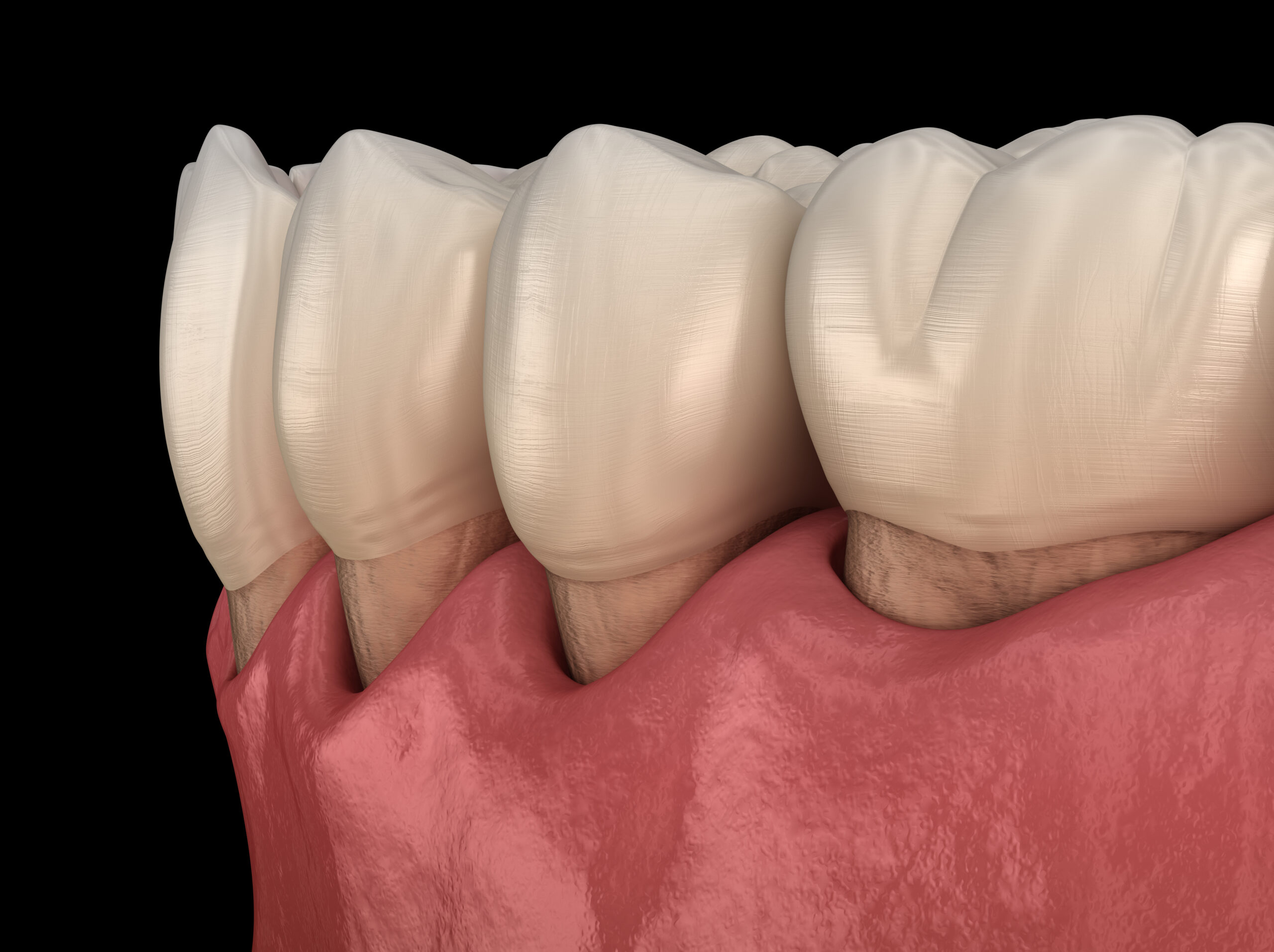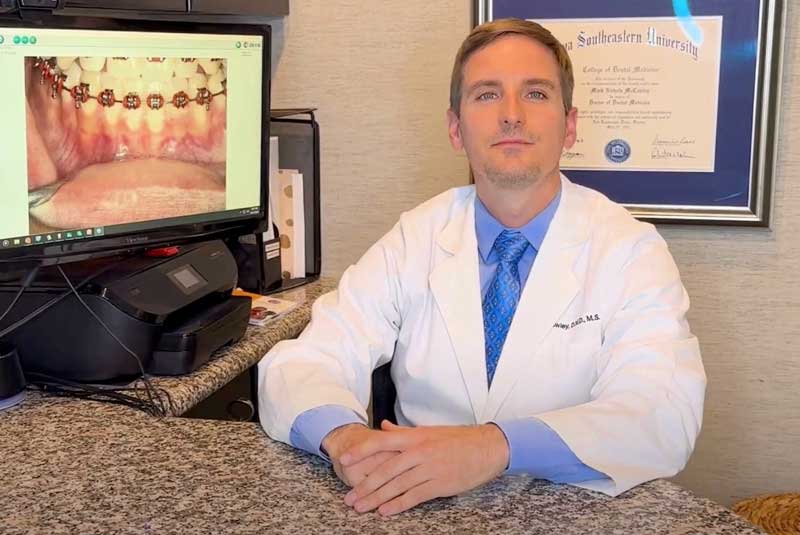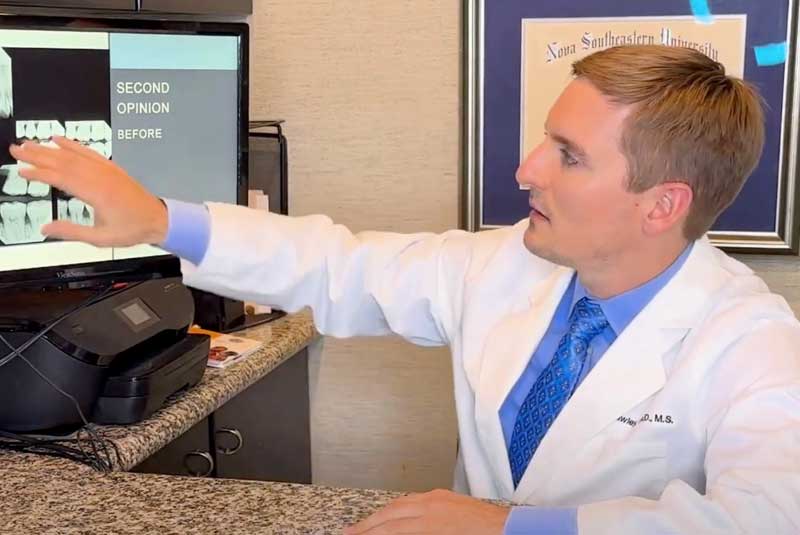
It may not be easy to spot receding gums at first. However, once the gums pull back too much, it becomes readily apparent and requires immediate treatment. It is vital to understand how this condition affects your oral health so that you can take steps to avoid it later in life.
Causes
There are many reasons why a person may develop gum recession. The most common is due to periodontal diseases. As gum disease progresses, it targets the underlying bone and gum tissue, causing the teeth to look longer in appearance. Other possible explanations include:
- Overly aggressive tooth brushing
- Hormonal changes
- Insufficient dental maintenance
- Genetics
Problems
In addition to a receding gum line, there are other symptoms to be aware of. The initial recession may be marginal at first, so you should pay attention to other changes in your oral health to see if prompt action is required.
You will notice an increased sensitivity to hot and cold items due to the roots of your teeth being exposed. Without treatment, receding gums can lead to tooth decay, bleeding gums, halitosis and tooth loss.
Treatments
As soon as you notice the symptoms, you should immediately contact the McCawley Center for Laser Periodontics and Implants. Drs. Tom and Mark McCawley are proficient with the Pinhole Surgical Technique™. This is a new type of surgery that involves our periodontist repositioning the gum tissue into a more attractive aesthetic. It does not require any sutures or cutting, so the recovery period is much quicker. It also leads to substantially less inflammation and discomfort.
Call Our Office
You do not want to wait until gum recession has gotten out of hand. The sooner you contact us, the less treatment you’ll require.
Click here to schedule a consultation about treatment options for gum disease and recession.










